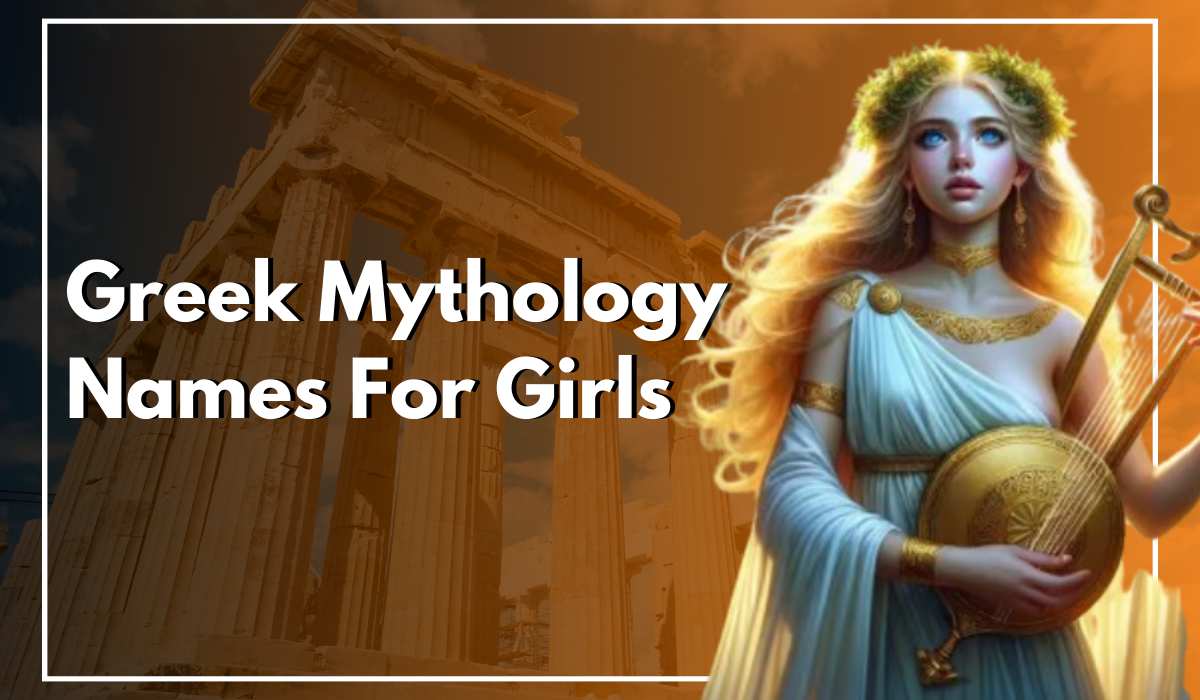When it comes to choosing a name for your baby girl, why not consider the timeless allure of Greek mythology? These names are not only beautiful but also steeped in rich history and fascinating stories that have captivated people for centuries. Opting for a name from Greek mythology can give your daughter a unique and meaningful identity right from the start.
Take, for example, the name Athena. Associated with the goddess of wisdom and warfare, Athena embodies strength, intelligence, and strategic thinking—qualities any parent would be proud to see in their child. Then there’s Aphrodite, the goddess of love and beauty. This name brings an air of elegance and charm that could perfectly suit your little one.
Choosing a name rooted in Greek mythology not only honors these ancient tales but also provides your daughter with an inspiring legacy she can carry throughout her life. Whether you seek wisdom with Athena or beauty with Aphrodite, these names offer more than just aesthetic appeal—they come imbued with stories that have stood the test of time.
So why settle for ordinary when you can give your daughter an extraordinary start? Delve into Greek mythology names for girls; you’ll find they offer both beauty and substance in abundance.
Greek Mythology Names For Girls
Greek mythology is a rich tapestry of gods, goddesses, heroes, and heroines with captivating stories and profound meanings. Whether you’re a parent seeking a unique name for your child, a historian intrigued by ancient cultures, or a writer in need of character inspiration, this list offers a deep dive into 100 Greek mythology girl names along with their meanings and significance.
A
- Acantha – “Thorn” or “Prickle”, a nymph loved by Apollo.
- Adrasteia – “Inescapable”, a nymph who cared for the infant Zeus.
- Aegina – A nymph that Zeus fell in love with.
- Alcestis – Known for her willingness to sacrifice herself for her husband.
- Alcyone – “Kingfisher”, turned into a bird after losing her husband.
- Amalthea – The goat who nurtured Zeus as an infant.
- Amphitrite – Sea goddess and wife of Poseidon.
- Andromeda – Saved from a sea monster by Perseus.
- Antheia – “Flower” or “Blossom”, goddess of flowers and flowery wreaths.
- Aphrodite – Goddess of love and beauty.
- Ariadne – Helped Theseus escape the Labyrinth.
- Artemis – Goddess of the hunt and moon.
B
- Beroe – A nymph associated with water and daughter of Aphrodite and Adonis.
- Briseis – A princess captured during the Trojan War, known for her beauty and connection to Achilles.
- Bia – Personification of force and raw energy, often depicted as a companion of Zeus.
- Baucis – Known for her hospitality, she was rewarded by the gods for her kindness alongside her husband, Philemon.
- Brynhildr – Although originating from Norse mythology, Brynhildr’s story is interwoven with early Greek mythological influences, representing a powerful and enigmatic Valkyrie figure.
C
- Calliope – Muse of epic poetry, considered the eldest and most distinguished of the Muses.
- Calypso – A nymph who detained Odysseus on her island, promising immortality.
- Cassandra – Gifted with prophecy, yet cursed to never be believed.
- Cerberus – While not a female figure, Cerberus is the multi-headed dog who guards the gates of the Underworld for Hades.
- Clio – Muse of history, depicted as a guide to the rich and storied past of the Greeks.
D
- Danae – Mother of Perseus, who was visited by Zeus in the form of a golden shower.
- Daphne – A nymph who turned into a laurel tree to escape the pursuit of Apollo.
- Dione – An ancient Greek goddess, often associated with Aphrodite.
- Dioneia – Considered an ocean nymph or one of the Hyades, associated with fertility and rain.
- Doris – A sea goddess and mother of the Nereids, symbolizing bounty and grace.
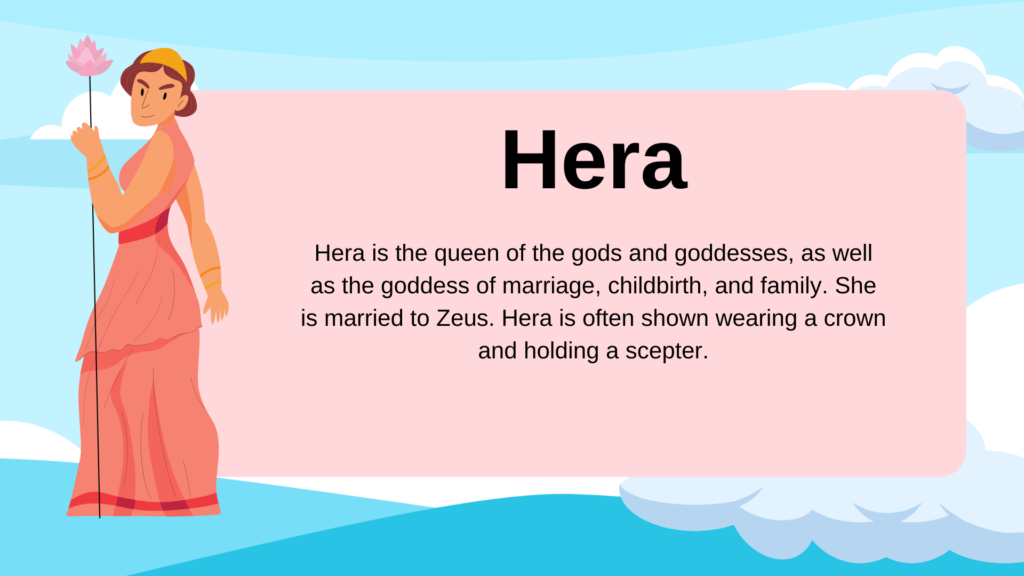
E
- Electra – Daughter of Agamemnon and Clytemnestra, known for her role in the revenge against her mother.
- Echo – A mountain nymph who could only repeat the last words spoken to her, known for her unrequited love for Narcissus.
- Eirene – Personification of peace and one of the Horae, daughters of Zeus and Themis.
- Eos – Goddess of the dawn, known for opening the gates of heaven every morning.
- Erato – One of the Muses, associated with erotic and love poetry.
F
- Faith – While traditionally a Christian virtue, the concept intersected with Greek virtues under various mythological figures denoting trust and fidelity.
- Filomela – Sometimes spelled Philomela, she was transformed into a nightingale after suffering a tragic fate.
- Fortuna – Though more aligned with Roman mythology, Fortuna’s precursors in Greek myth include Tyche, personifying luck and fortune.
G
- Gaia – The personification of Earth and one of the primordial deities, representing life and fertility.
- Galatea – A sea nymph loved by the Cyclops Polyphemus.
- Gorgo – Also known as Medusa, one of the three Gorgons, famous for her hair of living snakes and her ability to turn people to stone.
- Gorgophone – Known for being a skilled warrior, the daughter of Perseus and Andromeda.
- Gratia – A Roman equivalent to the Greek Charites, representing charm, beauty, and creativity.
H
- Harmonia – The goddess of harmony and concord, often associated with the sacred marriage.
- Hebe – The goddess of youth, cupbearer to the gods, and wife of Heracles after his ascension to Olympus.
- Hecate – The goddess associated with magic, witchcraft, the moon, and ghosts, often depicted at crossroads.
- Helen – Known as Helen of Troy, her abduction by Paris sparked the Trojan War; she symbolizes beauty and its complexities.
- Hera – Queen of the gods and goddess of marriage and family, protector of women.
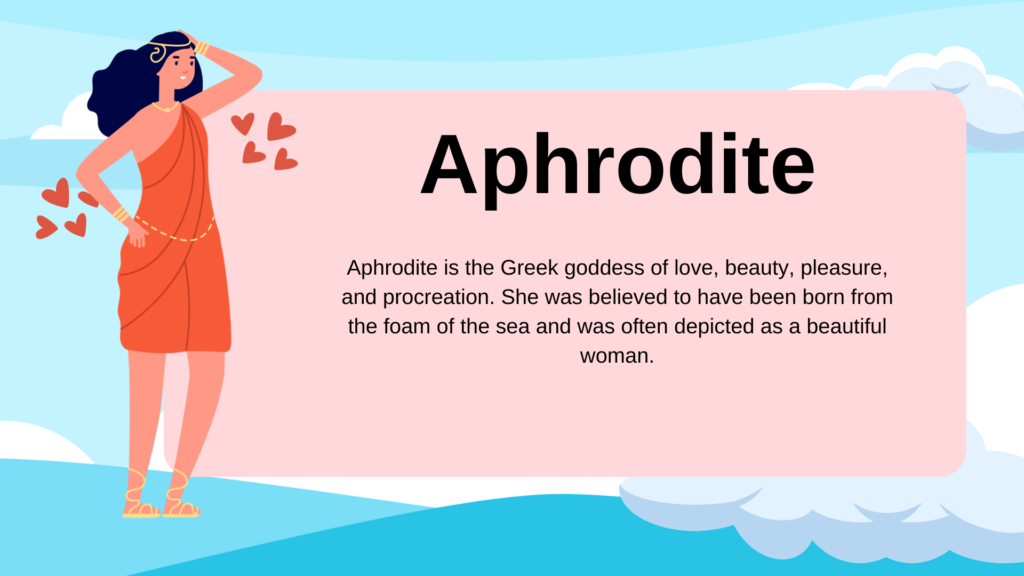
I
- Ianthe – “Violet flower”, a name symbolizing beauty and youth.
- Io – A nymph and one of Zeus’s lovers, often depicted as a white heifer.
- Irene – Another form of Eirene, embodying peace and tranquility.
- Iphigenia – Daughter of Agamemnon, known for her role in Greek sacrifices and later stories of her adventures.
- Iris – Goddess of the rainbow and messenger of the gods, connecting heaven and earth.
J
- Jocasta – Although more commonly associated with Greek tragedy than mythology, she’s known in the story of Oedipus as both his mother and wife, embodying themes of fate and destiny.
- Joceline – Not a traditional figure in Greek myth, but rooted in tales that weave virtue and nobility, often aligned with minor ancient Greek spirits representing ideals.
- Jocasta – Known from Greek tragedy rather than mythology, she was both the mother and wife of Oedipus, involved in themes of fate and destiny.
L
- Lamia – Originally a beautiful queen transformed into a child-devouring demon, representing a cautionary tale of jealousy and vengeance.
- Leto – Mother of twins Apollo and Artemis, revered as a goddess of motherhood.
- Lachesis – One of the three Moirai, or Fates, who determined the length of the thread of life.
- Ligeia – One of the sirens, known for her enchanting voice that led sailors to their doom.
- Lysandra – Although not a traditional mythological character, derived from a name meaning “liberator,” often linked with Spartan heroines.
M
- Maia – The eldest of the Pleiades and mother of Hermes, known for her beauty and nurturing qualities.
- Metis – The goddess of wisdom and deep thought, she was swallowed by Zeus, leading to the birth of Athena from his head.
- Medea – A sorceress who helped Jason secure the Golden Fleece, famous for her tragic love story.
- Mnemosyne – The Titaness of memory, mother of the Muses, often representing the power of recollection and storytelling.
- Merope – One of the seven Pleiades, with various myths connecting her to tragedy and humility.
N
- Nike – The goddess of victory, often depicted alongside Zeus and Athena, symbolizing triumph in both war and peaceful competitions.
- Nemesis – The goddess of retribution and balance, ensuring that hubris was appropriately punished.
- Narcissa – Though not directly from mythology, her name evokes themes of self-reflection and transformation.
- Nyx – The primordial goddess of the night, embodying the mysteries and power of darkness.
- Nereid – Sea nymphs known for their beauty and benevolence, daughters of Nereus, often depicted accompanying Poseidon.
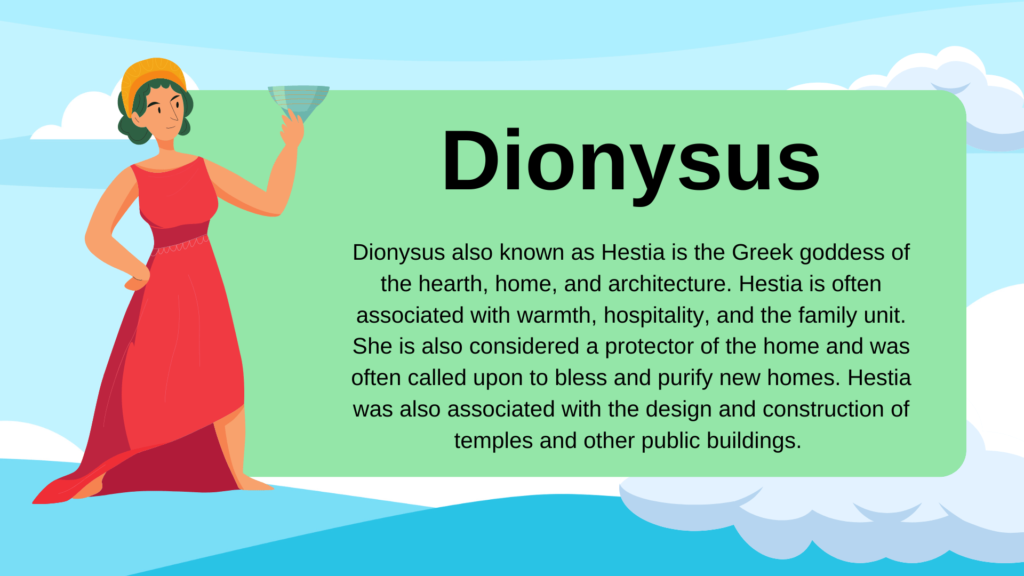
O
- Olympia – While not a deity, this name is associated with Mount Olympus and the home of the Greek gods.
- Orithyia – A nymph taken by Boreas, the North Wind, symbolizing the interplay between nature’s forces.
- Oenone – A nymph and the first love of Paris, known for her healing skills and tragic love story.
- Ophelia – Although primarily known from Shakespeare, the name relates to Greek origins and themes of tragic youth.
- Oread – A type of nymph attributed to mountains and grottoes, associated with rustic and natural beauty.
P
- Persephone – The goddess of spring and queen of the Underworld, her story explains the changing of the seasons.
- Penelope – The faithful wife of Odysseus, exemplifying loyalty and cunning.
- Pallas – An epithet for Athena, indicating her role as a warrior and protector.
- Pandora – Known for opening the box that released all evils into the world, representing curiosity and consequence.
- Psyche – A mortal woman beloved by Eros, her story embodies themes of love and transcendence.
R
- Rhea – The Titaness daughter of the earth goddess Gaia and the sky god Uranus, known as the mother of the Olympian gods.
- Rhode – Known in different myths as a sea nymph, and also as the wife of Helios, the sun god.
- Rhodopis – Though not a mythological figure per se, she is linked to ancient Greek folklore akin to “Cinderella” tales.
- River Styx – This river in the underworld is personified as a goddess, representing a boundary between Earth and the Underworld.
- Roxane – While not strictly a mythological figure, her name carries Greek origins and connects to the tales of Alexander the Great.
S
- Selene – The goddess of the moon, often depicted driving a chariot across the night sky.
- Siren – Mythical creatures known for their beautiful and enchanting music and voices, luring sailors to shipwrecks.
- Sibyl – A prophetess or oracle in Greek mythology, often associated with Apollonian insights and predictions.
- Sphinx – A mythical creature with the body of a lion and the head of a human, known for posing riddles to travelers.
- Saturnalia – While primarily associated with Roman festivals, it has ties to mythological celebrations of Satyrs and similar festive deities.
T
- Thanatos – The personification of death, often depicted as a peaceful figure guiding souls to the afterlife.
- Themis – The goddess of divine law and order, often associated with justice, fairness, and proper conduct.
- Thalia – One of the three Graces and the muse of comedy, she represents festivity and rich abundance.
- Tyche – The goddess of fortune and prosperity, often shown with a cornucopia, symbolizing abundance.
- Triton – The messenger of the sea, son of Poseidon and Amphitrite, usually depicted blowing a conch shell.
U
- Urania – The muse of astronomy, symbolizing celestial inspiration and the sciences connected with the heavens.
- Ulysses – The Roman name for Odysseus, known for his adventurous and cunning nature during the Odyssey.
- Uranus – The primordial god of the sky, representing the vast expanse of the heavens.
- Uriel – Not traditionally a figure in Greek mythology, but often associated with light and truth in various mythological interpretations.
V
- Venus – While primarily from Roman mythology, she corresponds to the Greek goddess Aphrodite, embodying love and beauty.
- Vesta – Known in Roman mythology as the goddess of the hearth, she correlates with the Greek goddess Hestia, representing domestic tranquility and family unity.
- Ventus – Though more symbolic than mythological, this Latin term for wind may intertwine with various wind deities across ancient myths.
- Vulcan – The Roman god of fire and metalworking, paralleling the Greek god Hephaestus, emphasizing craftsmanship and forge work.
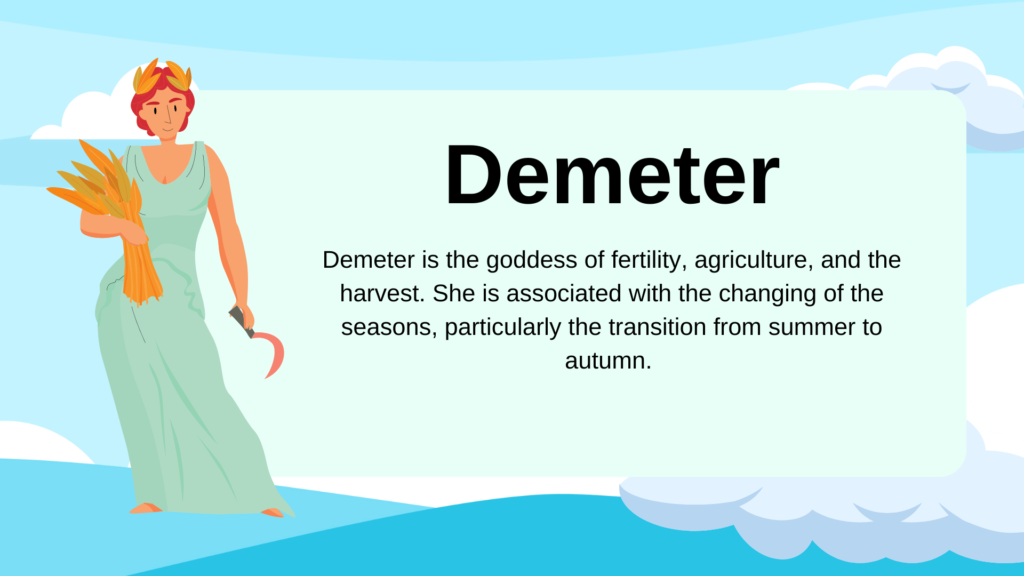
X
- Xanthe – A name meaning “golden,” associated with characters in Greek mythology who are sometimes depicted as radiant or bright.
- Xenia – The concept of hospitality and guest-friendship, crucial in Greek culture, often seen in myth through characters showing generosity.
Y
- Yalasha – Though not a traditional figure in Greek or Roman mythology, her name can signify the spirit of the forest or wilderness in various folklore traditions.
- Ymir – While not Greek, in Norse mythology, Ymir is the primordial being whose body was used to create the earth, offering thematic parallels to creation myths across cultures.
- Yggdrasil – The Norse “World Tree,” connecting different realms of existence, similar in scope to mythical symbols of universal connection found in many ancient cultures.
Z
- Zeus – The king of the Greek gods, ruling over Mount Olympus and wielding the power of the thunderbolt, representing authority and control.
- Zelus – The spirit of rivalry and emulation, portraying both the positive and negative aspects of ambition and competition.
- Zephyros – The personification of the west wind, regarded as the gentlest of the winds and a harbinger of spring.
- Zagreus – A deity who underwent various interpretations, often linked with underworld and Dionysian myths, reflecting themes of life, death, and rebirth.
Greek Goddess Names
Greek mythology is rich with fascinating deities, each with their own stories and attributes. Whether you’re a mythology enthusiast, a writer seeking inspiration, or a history buff intrigued by ancient cultures, this list of Greek goddess names is sure to captivate your imagination.
Major Olympian Goddesses
- Aphrodite – Goddess of love, beauty, and desire.
- Athena – Goddess of wisdom, courage, and warfare.
- Artemis – Goddess of the hunt, wilderness, and childbirth.
- Demeter – Goddess of agriculture, harvest, and fertility.
- Hera – Queen of the gods, goddess of marriage and family.
- Hestia – Goddess of hearth, home, and domestic life.
Lesser-Known Goddesses
- Hebe – Goddess of youth.
- Iris – Goddess of the rainbow and messenger of the gods.
- Nemesis – Goddess of retribution and vengeance.
- Nike – Goddess of victory.
- Persephone – Goddess of spring and queen of the underworld.
- Selene – Goddess of the moon.
Titans and Primordial Goddesses
- Gaia – Primordial goddess of the Earth.
- Rhea – Titaness mother of the Olympian gods.
- Theia – Titaness of sight and shining light.
- Mnemosyne – Titaness of memory and mother of the Muses.
- Tethys – Titaness of the sea.
- Eos – Titaness of the dawn.
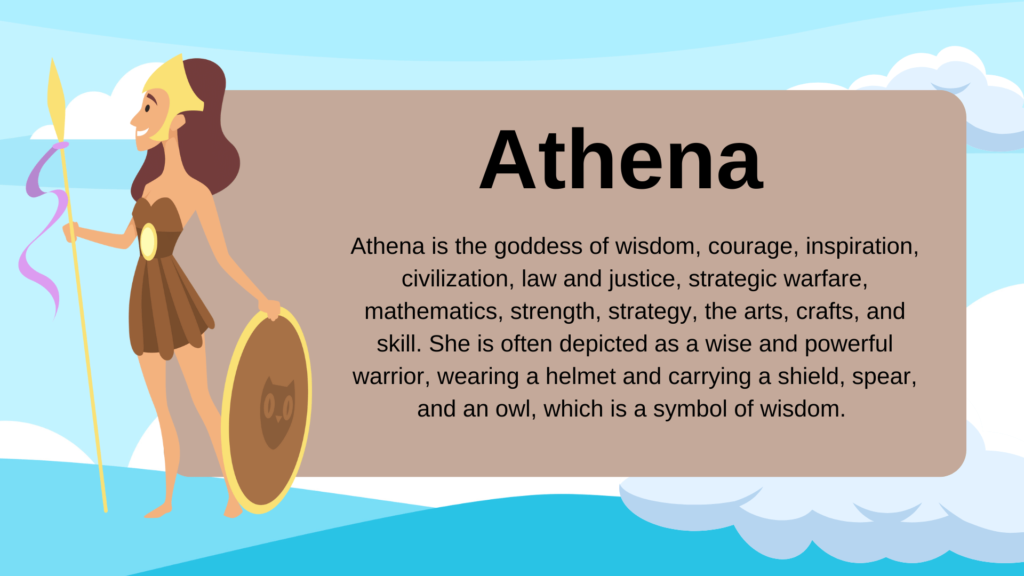
Nymphs and Minor Deities
- Calypso – Sea nymph who detained Odysseus on her island.
- Eirene – Goddess of peace.
- Eos – Goddess of the dawn.
- The Muses – Goddesses of inspiration in literature, science, and the arts.
-
- Calliope (epic poetry)
- Clio (history)
- Erato (lyric poetry)
- Euterpe (music)
- Melpomene (tragedy)
- Polyhymnia (hymns)
- Terpsichore (dance)
- Thalia (comedy)
- Urania (astronomy)
Personifications and Abstract Concepts
- Ananke – Personification of necessity and fate.
- Eris – Goddess of strife and discord.
- Tyche – Goddess of fortune and prosperity.
- Harmonia – Goddess of harmony and concord.
- The Fates (Moirai) – Controllers of destiny.
- Clotho (the spinner)
- Lachesis (the allotter)
- Atropos (the unturnable)
Mythical Female Names
Throughout mythology, countless female figures have captivated our imaginations with their strength, wisdom, and beauty. Here are some of the most iconic and inspiring mythical female names from various cultures:
Greek Mythology
- Athena: Goddess of wisdom, courage, and warfare.
- Artemis: Goddess of the hunt, wilderness, and childbirth.
- Hera: Queen of the gods, goddess of marriage and family.
- Persephone: Queen of the underworld, goddess of spring and rebirth.
- Aphrodite: Goddess of love, beauty, and desire.
Norse Mythology
- Freya: Goddess of love, fertility, and battle.
- Hel: Ruler of the underworld and goddess of the dead.
- Sif: Goddess associated with earth and fertility, known for her golden hair.
- Skadi: Goddess of winter, hunting, and skiing.
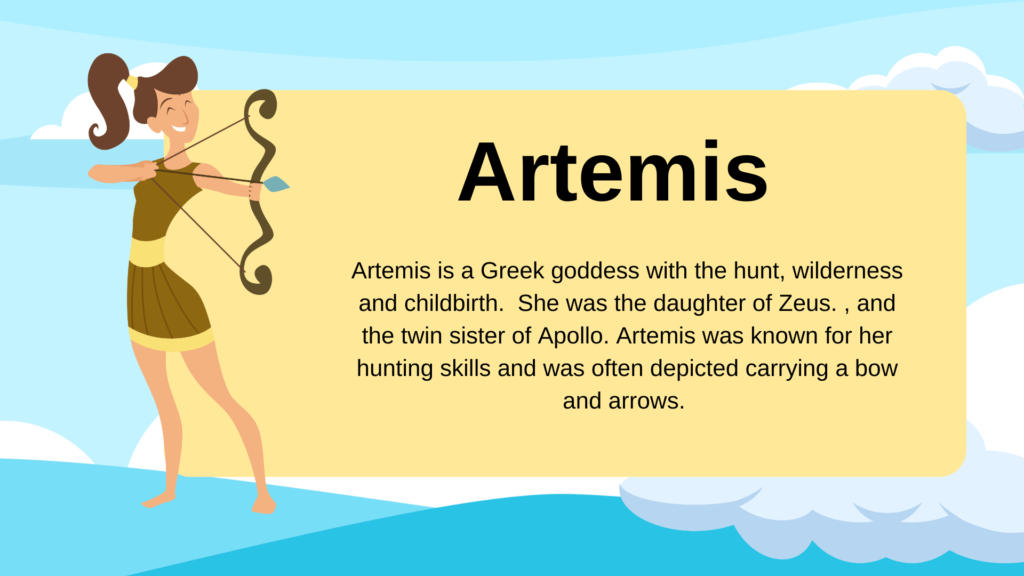
Egyptian Mythology
- Isis: Goddess of magic, marriage, healing, and protection.
- Hathor: Goddess of love, beauty, music, and motherhood.
- Nephthys: Goddess of mourning, night, and rivers.
- Sekhmet: Warrior goddess of healing and protector of the Pharaohs.
Celtic Mythology
- Brigid: Goddess of healing, poetry, and smithcraft.
- Morrigan: Goddess of war, fate, and death.
- Arianrhod: Goddess of fertility, rebirth, and the moon.
- Epona: Goddess of horses, fertility, and protector of riders.
Hindu Mythology
- Durga: Warrior goddess who combats evil and demonic forces.
- Lakshmi: Goddess of wealth, fortune, and prosperity.
- Saraswati: Goddess of knowledge, music, art, and wisdom.
- Kali: Goddess of destruction and transformation.
Roman Mythology
- Juno: Queen of the gods, goddess of marriage and childbirth.
- Minerva: Goddess of wisdom, strategic warfare, and the arts.
- Venus: Goddess of love, beauty, and desire.
- Diana: Goddess of the hunt, moon, and nature.
Also Check:
Whether you’re naming a character, a child, or simply indulging in the rich tapestry of Greek mythology, these names carry powerful meanings and legacies. For more insights or personalized suggestions, feel free to reach out or explore our additional resources.
